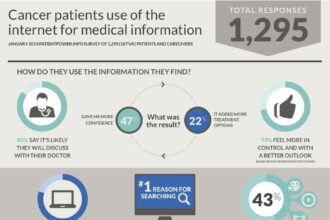Social media is a powerful information tool that has revolutionized how we communicate with each other on a daily basis. From saving lives in the wake of natural disasters to helping people in medical distress find organs, it promises incredible positive potential – yet also harbors some hidden dangers.
Social media is a powerful information tool that has revolutionized how we communicate with each other on a daily basis. From saving lives in the wake of natural disasters to helping people in medical distress find organs, it promises incredible positive potential – yet also harbors some hidden dangers.
 With healthcare, for example, you have to be very cautious with what you publicize, since the Health Insurance Portability and Accountability Act, or HIPAA, safeguards the privacy of patient information and can cost employees their jobs when violated, even inadvertently.
With healthcare, for example, you have to be very cautious with what you publicize, since the Health Insurance Portability and Accountability Act, or HIPAA, safeguards the privacy of patient information and can cost employees their jobs when violated, even inadvertently.
For example, an emergency room nurse was recently fired from her job at New York Presbyterian Hospital for posting a sensitive photo on Instagram. The image, which was technically a repost, depicted a messy trauma room after it had been used to treat a man hit by a subway car.
This isn’t the first time social media has led to disaster. Last year, an Illinois doctor posted provocative photos of a patient on various social media sites displaying her in an intoxicated state after she had been admitted to the hospital for overconsumption of alcohol. The patient was in no position to grant consent for these images to be snapped, or posted, and she is suing.
In general, unauthorized photo sharing on social media is probably not the best idea: we’ve all heard about Anthony Weiner by now. In healthcare, breaking the HIPAA privacy laws can lead to more than public shame, though: it can end in substantial lawsuits — which makes perfect sense, given the importance of safeguarding an individual’s rights to medical privacy.
Always keep HIPAA in mind so your healthcare facility can create and enforce a written policy for situations involving possible social media infractions. It might even be a good idea to hold classes to teach employees which social media behaviors are acceptable and which aren’t: they might not know.
For assistance in developing and implementing a customized policy that works for you, contact Wax Custom Communications at 305-350-5700, or visit waxcom.com.








